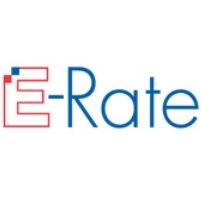FCC Allows Telecom Giants to Ignore Discount Rule for Providing Internet to Low-Income Schools
Sunday, May 06, 2012

Under federal law, telecommunications companies are required to provide affordable phone and Internet rates to schools in low-income areas, as well as subsidize the cost of equipment and services. The program is called E-Rate, but the time may have arrived for it to be renamed I-Rate.
Some telecom giants are simply not abiding by the requirements of E-Rate, and the Federal Communications Commission (FCC) hasn’t helped matters by not enforcing the law, according to ProPublica.
One company, AT&T, hasn’t bothered to train its employees about the mandatory low rates. AT&T, as well as Verizon, have been caught charging school districts higher rates than what’s allowed under the E-Rate program. In fact, AT&T has charged some schools 300% more than others in the same region for the same services.
The FCC has exacerbated the problem by not going after companies for violating the low-price rule. E-Rate was signed into law by President Bill Clinton in 1996, but in the 16 years since then, the FCC has yet to file a single case against a telecommunications company violating the “lowest corresponding price” requirement.
The FCC also delegated the responsibility of administering the E-Rate program to a private company, and “has provided little if any guidance to companies on how to apply the best-price rule,” wrote Jeff Gerth of ProPublica.
The money for the E-Rate fund comes from regular Americans in the form of an extra charge on their phone bill labeled by many companies “Universal Service Fund.”
-Noel Brinkerhoff, David Wallechinsky
To Learn More:
AT&T, Feds Neglect Low-Price Mandate Designed to Help Schools (by Jeff Gerth, ProPublica)
Cities Do Broadband Internet Better than Telecoms (by Noel Brinkerhoff and David Wallechinsky, AllGov)
- Top Stories
- Unusual News
- Where is the Money Going?
- Controversies
- U.S. and the World
- Appointments and Resignations
- Latest News
- Trump to Stop Deportations If…
- Trump Denounces World Series
- What If China Invaded the United States?
- Donald Trump Has a Mental Health Problem and It Has a Name
- Trump Goes on Renaming Frenzy






Comments